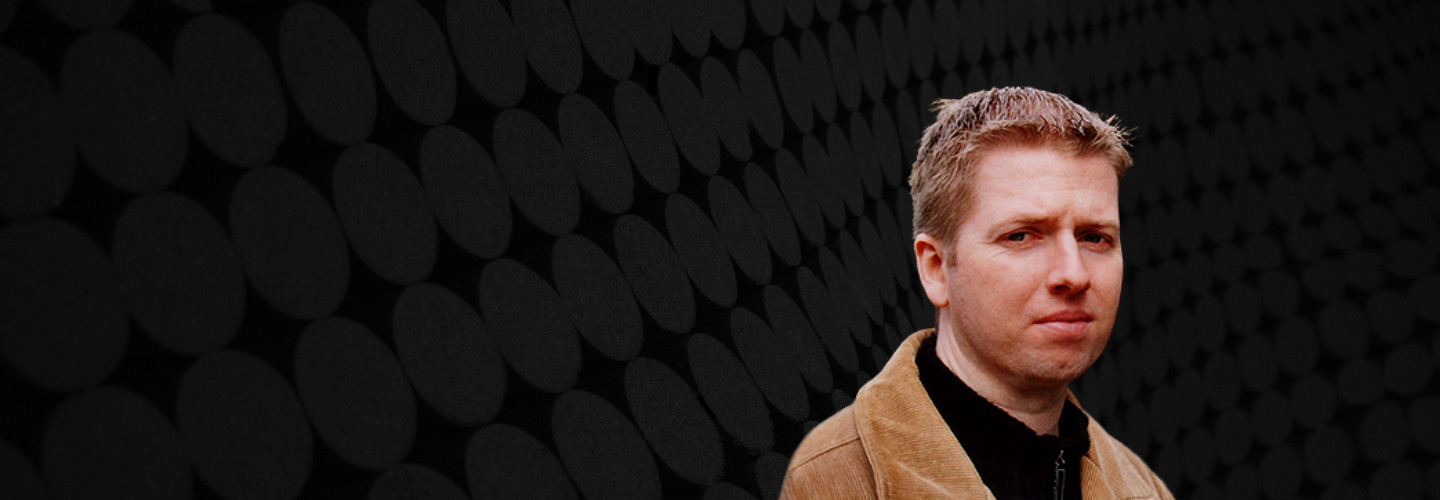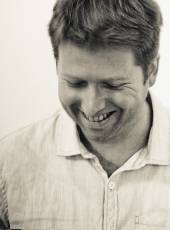


*26 December 1964
Ian Wilson was born in Belfast, Northern Ireland in 1964 and began composing while at university. He has since written over one hundred and fifty works, including chamber operas, concertos, string quartets, a range of orchestral and chamber music and multi-media pieces. His compositions have been performed and broadcast on six continents and presented at festivals including the BBC Proms, Venice Biennale and Frankfurt Bookfair and at venues such as New York’s Carnegie Hall, London’s Royal Albert and Wigmore Halls, Amsterdam’s Concertgebouw and Muziekgebouw, Vienna’s Musikverein and Tokyo’s Suntory Hall. Ian has in recent years also worked with jazz musicians, Asian tabla and Chinese pipa players and traditional Irish singers; he has also collaborated with choreographers, theatre directors and electroacoustic and computer music composers.
In 1991 Ian's first orchestral work, Running, Thinking, Finding, received the composition prize at the Ultima festival in Oslo and in 1992 he received the Macaulay Fellowship administered by the Arts Council of Ireland. In 1998 he was elected to Aosdána, Ireland's State-sponsored body of creative artists and in recent years he has been AHRB Research Fellow at the University of Ulster (UK), An Foras Feasa post-Doctoral Research Fellow at Dundalk Institute of Technology (IRE) and Associate Composer with both the Camerata Pacifica ensemble (USA) and the Ulster Orchestra (UK). He was director of the Sligo New Music Festival (IRE) from 2003 to 2011.
There are commercially-available recordings of nearly fifty of Ian’s works on labels including Diatribe, Riverrun, Black Box, Timbre, Guild, Meridian and Chandos. His music is published by Ricordi (London) and Universal Edition.
For Ian Wilson, art is “someone’s perception of the world made visible”.
Wilson’s view of the world is expressed as an accumulation of different perspectives encompassing nature (Timelessly This, Between the moon and the deep blue sea), the work of visual artists (An Angel Serves a Small Breakfast, Abyssal), abstract musical thought (Limena, Eigenschatten) and meta-commentaries on pre-existing texts (Hamelin, Humpty Dumpty).But it is also life experience itself that generates Wilson’s work, with the artist not observing from a distance but rather engaging in commentary through direct involvement in the world around him: life, death and faith are threads that affirm an ideology by turns spiritual and intensely human (The Seven Last Words, Messenger, Rich Harbour, … wander, darkling are clear instances of this). His is a voracious imagination that draws on wide-ranging sources.
A great deal of Wilson’s music speaks to both listeners and performers in direct terms with a lyricism tempered by a dark harmonic piquancy. The music also possesses a dramatic sense of space and broad sense of line that traces a path for the listener in an uncluttered manner, despite its sophistication and occasional complexity. "Technical compositional procedures are always subservient to expression and are used to achieve the aim of expressing whatever mood, emotion or idea I’m interested in at the moment."
